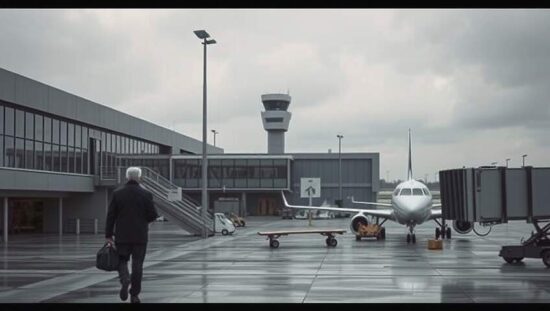The German government has postponed promised tax relief for the aviation industry, sparking criticism from industry representatives and drawing sharp condemnation from opposition parties. A statement released by the Federal Ministry of Transport to the “Rheinische Post” confirmed there are “no room for maneuver” within the 2026 federal budget to reverse the increase in air passenger duty (Luftverkehrssteuer). While the ministry indicated a constructive effort to pursue reductions during the 2027 budget planning, the delay is being viewed as a significant setback for the sector.
This decision flies in the face of commitments made by Chancellor Merz during the general budget debate, who had explicitly pledged relief measures to bolster the competitiveness of German aviation. Joachim Lang, CEO of the German Aviation Industry Association, voiced his disappointment, emphasizing the urgency of the situation, stating that for the German aviation sector, “it is already five to twelve”. He argues the postponed relief will further compromise the industry’s ability to compete internationally.
The timing is particularly sensitive given that the air passenger duty was raised in 2024, ostensibly to address budgetary shortfalls and encourage a shift towards more sustainable alternatives. However, the transportation sector has consistently failed to meet its CO2 reduction targets since 2021, highlighting a systemic challenge the government has yet to resolve.
The potential for tax relief has also drawn intense scrutiny from the Left party. Luigi Pantisano, the party’s spokesperson for transport policy, sharply criticized the government’s plans, labeling them a consequence of “climate-damaging lobbying”. Pantisano advocated for a radical shift away from air travel, arguing that “all flights must be shifted to the railway, which can be reached by train in a maximum of six hours”. He demanded the cessation of “climate-damaging subsidies for air traffic” and prioritized rail transport for both passengers and goods.
The postponement and potential relief measures reveal a fundamental political tension surrounding aviation in Germany. While the industry asserts the need for competitive advantages, environmental concerns and the government’s commitment to climate targets remain significant obstacles. The delay exposes a widening gap between political promises and concrete action, raising questions about the government’s long-term strategy for both the aviation sector and Germany’s broader climate goals.





